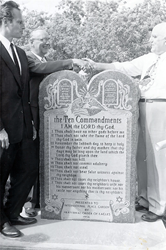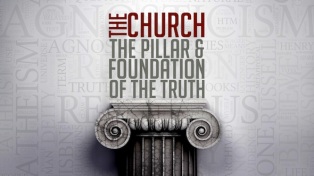
“Moses went up from the plains of Moab to Mount Nebo, to the top of Pisgah, which is opposite Jericho. And the Lord showed him all the land, Gilead as far as Dan, all Naphtali, the land of Ephraim and Manasseh, all the land of Judah as far as the western sea, the Negeb, and the Plain, that is, the Valley of Jericho the city of palm trees, as far as Zoar. And the Lord said to him, “This is the land of which I swore to Abraham, to Isaac, and to Jacob, ‘I will give it to your offspring.’ I have let you see it with your eyes, but you shall not go over there.” So Moses the servant of the Lord died there in the land of Moab, according to the word of the Lord, and he buried him in the valley in the land of Moab opposite Beth-peor; but no one knows the place of his burial to this day” (Deut. 34:1-6).
I am personally invested in the enterprise of international education. Since the advent of air travel, the opportunities for students to learn about their world, and how they fit into, have expanded exponentially. Every academic insitution worth its salt knows that studying abroad is an extraordinarily potent and life-changing element of any student’s education.
Those who work in the field of global education are an interesting lot. Having had their appetites whet through their own international experiences, they ceaselessly encourage students to have similar experiences. They know that, students who want to be global leaders need to experience being immersed into another culture. Then, and only then, can one develop what is professionally called “intercultural competency … a crucial skill-set in today’s global workplace, where employees are more likely to interact with co-workers, vendors or customers from different cultures and countries, and need to work productively with people who have been shaped by different values, beliefs and experiences.”*
For many international education workers, their wanderlust and international mobility has afforded them exotic well-traveled lives. Most acknowledge that, with each additional cross-cultural experience, they are more comfortable everywhere.
But home nowhere.
Moses was a true international.
Moses was born into a clan of refugees. He was an illegal immigrant into Egyptian society, and grew up immersed in that culture. He looked, sounded and acted in every way like an Egyptian. He was a criminal, and a fugitive of justice, hiding out in Midian. He married into a rural family, living, working and raising a family there for 40 years. By his 80th birthday, he looked, sounded and acted in every way like a Midianite, but with residual traits of Egyptian. What he wasn’t like? A jew.
Yet he was called by God to redeem the Jewish people. He went back to Egypt, with his Midianite/Egyptian accent, and worked to see an oppressed ethnic group have their lot improved, and ultimately experience independence. He ends up the leader of this vast group of people, with whom he is ethnically connected, but culturally estranged. For forty years Moses would experience the cross-cultural morphing that comes with immersing oneself in a new people and geography.
I wish Moses could do a press conference today. Having lived a life like his, what would he have to say? He experienced political upheaval, pandemics, judicial appointments, military exercises, food distribution programs, immigration politics, natural disaster relief, border protection strategies, attacks on patriotism, religious intolerance,… He also experienced multiple levels of racial discrimation – including slavery, judicial injustice and ethnic cleansing, But he also experienced the blessings of those who received him across these lines – upper class Egyptians, middle class Midianites, and lowest-caste Jewish refugees. Talk about cross-cultural competence!
At the tender age of 120, Moses dies. His life has been one of being perpetually displaced. Always an immigrant, never completely at home, Moses dies in … of all place, Moab. Not Egypt. Not Midian. Not the land promised to Abraham, Isaac and Jacob. No, he dies in an unmarked grave in the hills of a land which would have a sketchy relationship with the Israelites forever. A seemingly ignoble death experience for one of history’s most influential and interesting people.
What made Moses a brilliant internationalist? His life was centered not in the ever-changing world of global policy, but in something deeper, richer and lasting. More on that in the next blog…
EO


 In
In 

 In Amos 1 and 2, the prophet foretells the judgments of eight nations. Six of them are “secular,” and two are the divided kingdoms of the people of God, Israel and Judah. In sum, they provide a litany of specific offenses that will lead to condemnation from God. Wartime tortures (1:3,13), human trafficking (1:6,9), denigrating other foreign leaders (2:1), forsaking peace accords (1:9), “forsaking pity” and staying perpetually hostile (1:11) … all for the sake of imperialistic land-grabs (1:13). All of these charges have to do with international politics.
In Amos 1 and 2, the prophet foretells the judgments of eight nations. Six of them are “secular,” and two are the divided kingdoms of the people of God, Israel and Judah. In sum, they provide a litany of specific offenses that will lead to condemnation from God. Wartime tortures (1:3,13), human trafficking (1:6,9), denigrating other foreign leaders (2:1), forsaking peace accords (1:9), “forsaking pity” and staying perpetually hostile (1:11) … all for the sake of imperialistic land-grabs (1:13). All of these charges have to do with international politics.

 I was reminded of this tension as I read this Facebook post today. It’s from an old friend, talking about his church’s upcoming weekend services. Needless to say, the names are fictitious:
I was reminded of this tension as I read this Facebook post today. It’s from an old friend, talking about his church’s upcoming weekend services. Needless to say, the names are fictitious: What I find most disheartening, though, is the hermeneutic of the “message”. The story of Lazarus is a narrative story that speaks of the grandness and glory of God, the power of resurrection, and the beauty-for-ashes reality of salvation! It’s about how great God is, and how we should praise Him, be assured by Him, and believe in Him. That’s why “these things were written” (John 20:31).
What I find most disheartening, though, is the hermeneutic of the “message”. The story of Lazarus is a narrative story that speaks of the grandness and glory of God, the power of resurrection, and the beauty-for-ashes reality of salvation! It’s about how great God is, and how we should praise Him, be assured by Him, and believe in Him. That’s why “these things were written” (John 20:31). of the gospel: God’s love overwhelms your sin, so that you are at absolute peace with God. This gospel also serves as the greatest motivator to righteous conduct.
of the gospel: God’s love overwhelms your sin, so that you are at absolute peace with God. This gospel also serves as the greatest motivator to righteous conduct. “Watch out for false prophets. They come to you in sheep’s clothing, but inwardly they are ferocious wolves”
“Watch out for false prophets. They come to you in sheep’s clothing, but inwardly they are ferocious wolves” “
“ Our cities, littered with denominational church institutions of numerous stripes, stands as a testimony to this reality in our day. Clearly, all “truths” are not created equal. In a culture where truth is relative, and everyone’s truth “ought to be honored”, it may be politically incorrect to insist on doctrinal purity … but it is no less important, and perhaps never more urgent. Churches need to be more effective at being the “pillar and foundation of the truth” in our world (1 Tim. 3:15). But individual believers also need to be relentlessly thorough in their knowledge about God.
Our cities, littered with denominational church institutions of numerous stripes, stands as a testimony to this reality in our day. Clearly, all “truths” are not created equal. In a culture where truth is relative, and everyone’s truth “ought to be honored”, it may be politically incorrect to insist on doctrinal purity … but it is no less important, and perhaps never more urgent. Churches need to be more effective at being the “pillar and foundation of the truth” in our world (1 Tim. 3:15). But individual believers also need to be relentlessly thorough in their knowledge about God.  One of primary reasons people don’t like Christians is because they think us to be hypocrites. We regularly fail to live up to the high standards to which we aspire, and about which we preach. We compound the world’s frustration when we lobby to see those standards embraced by everyone (e.g., championing “family values”, even political legislation) when we do such a poor job of living them out ourselves.
One of primary reasons people don’t like Christians is because they think us to be hypocrites. We regularly fail to live up to the high standards to which we aspire, and about which we preach. We compound the world’s frustration when we lobby to see those standards embraced by everyone (e.g., championing “family values”, even political legislation) when we do such a poor job of living them out ourselves. Biblical writers,is totally different.
Biblical writers,is totally different. giftings all our brothers and sisters around us.
giftings all our brothers and sisters around us. My encouragement is for all to look beyond those poor representations of an incredible faith. See instead the real deal, the substance of genuine, classical Christian living. I am sure that, if our churches were full of these humble, prayerful, fruitful people, that Christianity would have a much better name in our world. You might even be interested in joining their ranks.
My encouragement is for all to look beyond those poor representations of an incredible faith. See instead the real deal, the substance of genuine, classical Christian living. I am sure that, if our churches were full of these humble, prayerful, fruitful people, that Christianity would have a much better name in our world. You might even be interested in joining their ranks. Frederick Beuchner is one of my favorite authors. His insights into the spiritual life, with Christ at its center, have been very formative to me. I recently signed up for
Frederick Beuchner is one of my favorite authors. His insights into the spiritual life, with Christ at its center, have been very formative to me. I recently signed up for  I’ve been a minister for decades. Sometimes I fall into the trap of believing that I’m some kind of divinely appointed DA for the Lord, guiding testimonies in the court of public opinion. If I do my job right, I’ll be able to lead the “jury” to my appointed conclusions. That’s why I’ve been lured into my share of (what I have found to be counter-productive) social media rants, thinking that my clear delineation of spiritual realities through Spirit-taught (Biblical) words will win the day.
I’ve been a minister for decades. Sometimes I fall into the trap of believing that I’m some kind of divinely appointed DA for the Lord, guiding testimonies in the court of public opinion. If I do my job right, I’ll be able to lead the “jury” to my appointed conclusions. That’s why I’ve been lured into my share of (what I have found to be counter-productive) social media rants, thinking that my clear delineation of spiritual realities through Spirit-taught (Biblical) words will win the day.
Any Chance We Might Grow Up?
Withholding love from another person is the supreme act of childishness. Forbearing, proactive love … that’s the trait of a mature adult. We need God for that.
———————
This from one of Christianity’s most popular texts, 1 Corinthians 13: “When I was a child, I spoke like a child, I thought like a child, I reasoned like a child. When I became a man, I gave up childish ways” (13:11). What are these childish ways that Paul is talking about? In the context of this chapter, it’s quite simple. It is childish to withhold love.
“And if I have prophetic powers, and understand all mysteries and all knowledge, and if I have all faith, so as to remove mountains, but have not love, I am nothing.” If I, in my self-perceived brilliance, believe in my convictions can change the world around me, but cannot be kind when I present them, I am nothing.
“If I give away all I have, and if I deliver up my body to be burned, but have not love, I gain nothing.” Even if I “walk my talk”, and am involved in all kinds of service projects that support my causes, but my heart and attitude toward others who disagree with me remains angry and contentious, the gain of my good works is nullified.
So, what is this love that Paul speaks of? It is, primarily, staying active in hard relationships. “Love is patient and kind; love does not envy or boast; it is not arrogant or rude. It does not insist on its own way; it is not irritable or resentful; it does not rejoice at wrongdoing, but rejoices with the truth. Love bears all things, believes all things, hopes all things, endures all things. Love never ends.”
Kind. Love suffocates in non-relationship. It breathes through activity. Being kind is love. Just choosing to be neutral — to not be unkind — isn’t love.
Patient. Bearing. Enduring. Never-ending. Love assumes things will get difficult, and stays in the game anyway. To bail out on a relationship when it doesn’t go your way, that’s childish.
Arrogant. Rude. Irritable. Resentful. If these words describe you, then you’re acting like a child.
If you are so bent toward someone that you actually rejoice when things don’t go their way … this is the height of immaturity.
Children think they know. Then they become judge and jury over you. You will be found guilty. Love is gone. Existence becomes null and void.
God, through His Word, calls us to put away these childish behaviors. He provides the means to do so. But these days few are listening to God, and even fewer are availing themselves to the divine empowerment that makes change possible. Even those who find God interesting remain unwilling to hear His call to us to exercise the self-sacrificing kind of love that could change the world.
Any chance we might grow up? Our chance is contingent on our love for God … which will enable our love for our neighbor. Without God? No chance.
“If anyone would come after me, let him deny himself and take up his cross and follow me. For whoever would save his life will lose it, but whoever loses his life for my sake will find it” (Matthew 16:24-25).
– EO
Posted by EO - on September 8, 2017 in 21st Century, Christianity, church, Contemporary Experiences, Culture, Discipleship, Hope, Politics
Tags: 1 corinthians, adults, apostle paul, child, childish, children, commentary, immature, love